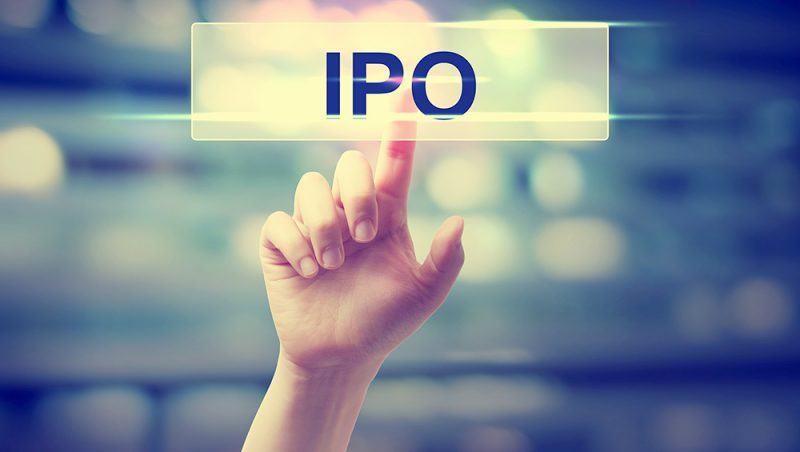These Are The 9 Biggest IPOs of All Time

It’s a mega year for mega tech IPOs.
Messaging platform Slack filed to go public Friday, and Uber priced it’s massive offering the same day. Earlier in April, Lyft, Pinterest and Zoom all went public, and AirBnB and Palantir are expected to debut later this year. According to Renaissance Capital, it could be a record breaking year for IPOs in general, potentially even surpassing the dot-com boom years. “We think it is possible that 2019 could prove to be a record year for capital raised in the IPO market, at over $ 100 billion in issuance, exceeding the amounts raised in 1999 and 2000,” said Kathleen Smith, principal at Renaissance. Below, we looked at the ten largest U.S. IPOs of all time, and how they’ve fared since going public. Interesting, only one of this year’s offerings is slated to make the top ten (can you guess which?)
Alibaba, $ 25 billion
This Chinese tech giant burst onto the U.S. IPO scene in 2014, choosing the U.S. rather than the Hong Kong stock exchange at a time when the latter didn’t allow for dual class offerings (a structure that gives outsized control to founders and executives). Shares have risen 190% since its IPO for a valuation of $ 484 billion. However, a slowdown in China has some investors concerned.
Visa, $ 19.7 billion
This IPO came just days after the collapse of Bear Stearns—but investors were nonetheless charged up by Visa. The credit card company set a record in March 2008 by raising $ 19.7 billion. Wary of the bursting credit bubble, investors liked that Visa didn’t directly carry consumer debt at a time of rising defaults. Visa has continued to be a winner for investors, returning 1,363% since its debut.
General Motors, $ 18.1 billion
The name behind one of the largest U.S. bankruptcies also also tied to one of the largest U.S. IPOs. General Motors filed to raise $ 18 billion roughly a year after the government agreed to bail the company out as it underwent Chapter 11 bankruptcy. Though GM is one of revival and rejuvenation, it has hit several hiccups with an ignition switch scandal linked to 124 deaths and 275 injuries. The stock has risen 18% since the IPO.
Enel SpA, $ 17.4 billion
An Italian electricity company, Enel went public in September 1999 as part of a privatization program by the country’s government. The IPO came after heavy cost cutting measure from then CEO Franco Tato. Some 15,000 people had been cut from the staff between 1996 to 1999, while operating costs had fallen 18%, per the Wall Street Journal. The stock though no longer trades in the U.S. due to low trading volume.
Facebook, $ 16 billion
This May 2012 IPO was known for its first-day trading troubles. Nasdaq delays and glitches led to some traders receiving shares at higher prices than ordered; The stock, with the help of its underwriters, just barely managed to stay above its $ 38 IPO price at the end of the day, closing at $ 38.23. In 2012 the IPO was valued at about $ 81.2 billion. Since then, the company has continued to add users and wow Wall Street with earnings reports even as it struggles with PR and privacy problems. The stock is up 408.6% since then for a now $ 547 billion market capitalization.
Deutsche Telekom, $ 13.1 billion
A mega European IPO, the German Telekom giant was privatized, and then listed on stock exchanges in Frankfurt, Tokyo, and the U.S. in 1996. At the time, the plan was to use the funding to expand in international markets. However the company no longer trades on major U.S. exchanges.
AT&T, $ 10.6 billion
The 2000 IPO helped spin off AT&T’s wireless division—though it would eventually return to the AT&T fold just years later. It was, at the time, the largest U.S. IPO ever.
Uber Technologies, $ 9 billion
The ride-sharing giant Uber priced its much anticipated IPO between a range of $ 44 to $ 50, meaning it should raise roughly $ 9 billion. Previously, it had been rumored Uber was seeking a valuation of $ 120 billion but the current range would place it in the valuation-sphere of American Express ($ 96 billion), Starbucks ($ 95 billion), Costco ($ 108 billion), and within striking distance of Nvidia ($ 114 billion). The billion dollar question though still stands: When and how will Uber grow profits that will justify its numbers?
Kraft Foods $ 8.6 billion
Few remember that the maker of Oreos and Oscar Mayer weiners was was owned by a cigarette company. After all, it’s been a decade-and-a-half since since Phillip Morris, now Altria, offered Kraft Foods up for what was then the country’s second largest IPO. Then known as Kraft Foods, it began trading on the Nasdaq as “KFT” in 2001, with Altria’s stake in the company spun off to shareholders in 2003. The company was valued at about $ 53.8 billion at the time, giving investors returns of 146.6% since its IPO nearly two decades earlier. It’s comparatively weak stock growth (when compared to the S&P 500) can be at least in part attributed to changing consumer patterns.
